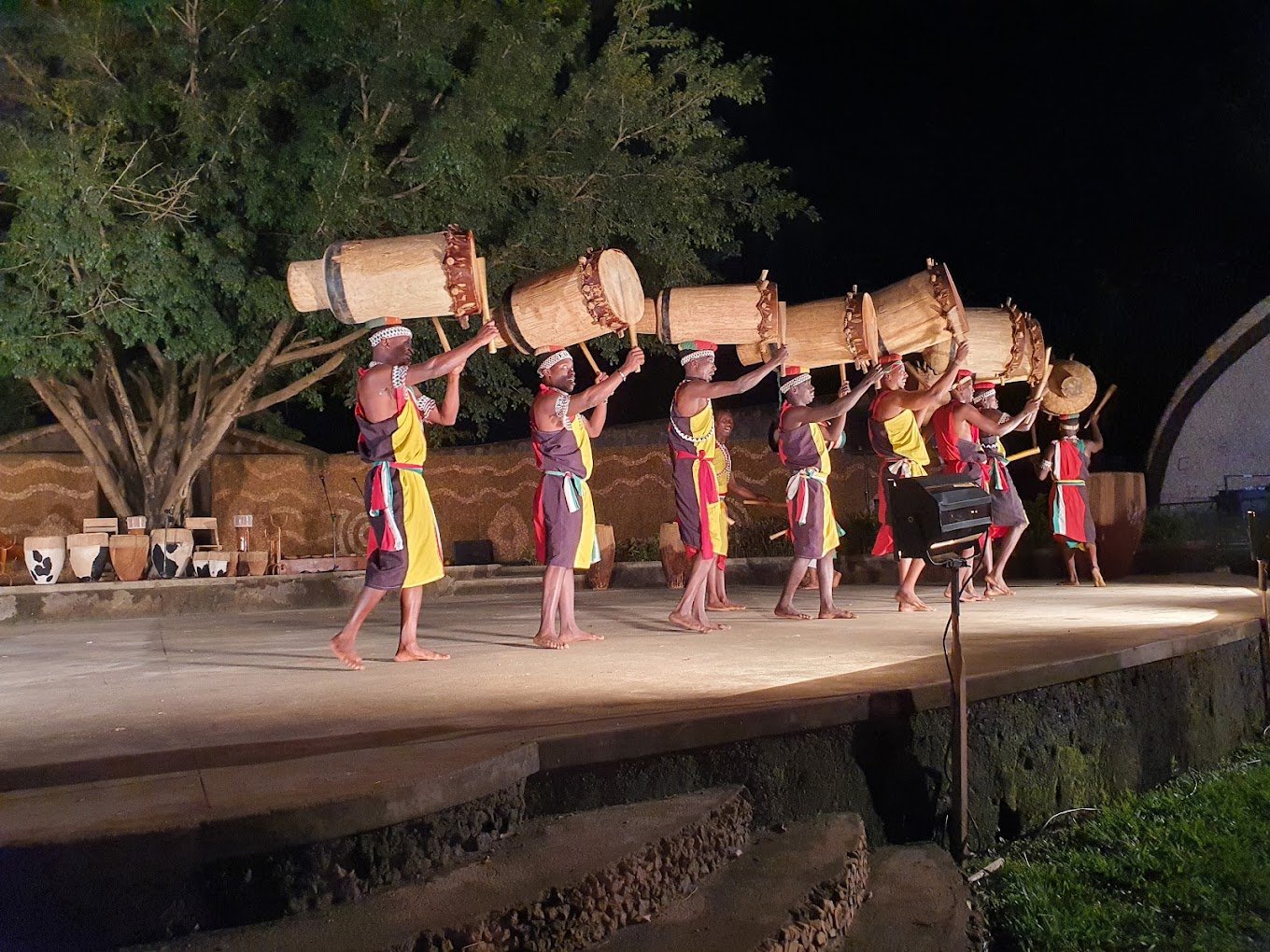Ndere Cultural Center
By Tom Ephraim Junior
I have grown around people of different cultures and beliefs which inspired me so much to know more about the traditional and how God can relate with his people through these cultures. On the 9th of July, 2023, after the powerful sermon and meal at Ap. Joseph’s house, we traveled to Ndere cultural centre. This is an African cultural hub that expands over 9 acres of well-maintained African flora and fauna. This place looked so beautiful and organized with different cultural memorials, which could give you a chance to visit different cultures in a short while and learn about them.
Sunday seemed more of a family time on the ground of Ndere, as many people came to be entertained with their families. Ndere cultural centre has a performing group called Ndere dance troupe. This group takes you around the Uganda cultural lanes through dance and drama, accompanied with a carefully prepared BBQ buffet.
All the shows at the ground are introduced by Dr. Stephen Rwangyezi, who is the founder of Ndere Dance Troupe in 1986. He was born in 1955 and grew up in a family where they danced and sang to express happiness, coupled with the need to break the societal perception that traditional dance is backward and evil. But this was also a way of keeping joy and sincere gratitude to the Lord during praise and worship. Scriptures also evidence them in Psalms 149:3 “Let them praise his name with dancing, making melody with tambourine and lyre.
The word “Ndere” means the “flute.” The word Ndere Troupe therein implies a flute troupe, and even in the Bible, such families enjoyed playing the flute, like the family of Jubal. The flute was chosen as a symbol of beauty as it produces soothing, beautiful, and irresistible music which can be manipulated to express a range of emotions, from sorrow to joy and from love to loneliness.
Ndere prides itself in emphasizing commonalities and celebrating the cultural rich differences. Historically in Africa, written words did not exist therefore Africa’s cultural history, literature, knowledge, and wisdom were recorded and passed onto succeeding generations through the medium of performing arts, music, dance, storytelling and poetry. So, Ndere performs a repertoire of more than 40 authentic Ugandan dances and songs accompanied by various indigenous percussive stringed and wind instruments. These are flutes, adungus, akogo, etc.
The troupe uses traditional entertainment to spread knowledge and educate generations about current issues such as modern farming techniques and HIV/AIDS.
From their magnificent cultural center, they use local dancing instruments like big drums and big xylophones, performing different cultural dances, with different cultural wares. Fitness meets culture at Ndere with a lot of drama that brings happiness which they term as “Ensheko.”
They kept playing sweet music called “Agwara and Adungu,” from the West Nile which always helped them to transit from one cultural performance to another within a small time frame. The traditional dances include Agwara (a ritual dance today used in wedding), Ekoche (a courtship dance of the Langi people), Ekizino (from the Bakiga people), and Ekitaguriro (from the Banyankole people, also called “the cow dance”), among others.
Most interesting from the Baganda kingdom, the Baganda people in the central Uganda region have a traditional folk dance that originated from a funny story of one Kabaka of Buganda kingdom who got drunk from the local drink ‘tonto’ or ‘omwenge,’ made from bananas, and as he dacned out of happiness, he was joined by the people around him and has since been a celebratory dance among the Baganda people. the dance is called “Nankasa, Baakisiimba, Muwongola.”
I also saw the Acholi dance from the Northern Uganda. These speak Luo language and deeply practice their culture, with women taking care of agriculture and the men the livestock. This connects back on how man is so connected to land in Genesis. The Lord God intended to put man in the garden of Eden to work it and keep it (Genesis 2:15).
This collection of different cultures gives a very big impact to the learning and behavior abilities of the young generation.

